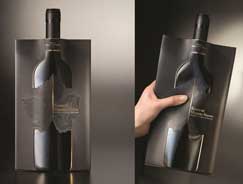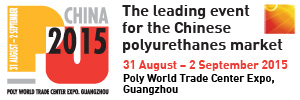
Start Plast, a new business incubator initiative at the Plast show in Milan, Italy, was introduced to indicate to visitors that it is still possible to do business in Italy, said Mario Maggiani, Managing Director of Promaplast, the organiser of the Plast trade show. Terming it as "seedbed for new projects," Maggiani said the Start Plast was initiated to inject new life into the show, given that "the recession is dragging on and serious difficulties continue to plague all of Italian business, including the plastics and rubber industry." He added, "We felt that it is our duty to find a way to facilitate young entrepreneurs and the companies that represent our future."
The dedicated space featured some 30 start-up companies that had the space for free.
One of the exhibitors included Italian/Dutch design agency Reverse Innovation that has innovated a wine pouch. With current flexible packaging for wine having a mediocre image of the quality of the wine filled in it, Reverse Innovation Amsterdam (a spin-off of the Italian agency Reverse Innovation)'s approach was how to overcome the negative image of wine sold in pouches or as a "bag in a box". It also set out to target the wine packaging segment that is traditional and not open to changes.
The design was born from a partnership with wine maker Gigante and Dutch packaging firm Dackla Pack.
The result is a graphic and structural pack that reinterprets the classic Bordeaux bottle. "The graphic design and fine detailing plays a crucial role in supporting the quality positioning of the wine. The contours of the bottle shape are emphasised with gold foil while the terroir of the wine is retold through the use of blind embossing and UV varnish to reproduce the specific shape of the vine leaf which is characteristic of the area," said Mirco Onesti, Reverse Innovation's Creative Director/Partner.
"Our intention was create a high quality product that appeals to a discriminating audience, in order to offer an unconventional and alternative pack for the wine sector and beyond. Wine bottles are intended to be touched and handled so consideration of the aesthetic, tactile and functional experience was essential."
Thus, a simple black pouch is wrapped in a paper sleeve that defines the shape of the product. The paper structure also ensures that the pouch is robust and self-standing at every stage of consumption.
The patented plastic pouch is made of METPET (metallised films coated with aluminium) and BOPP. It has already been in the market for a year, according to Onesti. "We are 95% ready to launch it." Onesti said the company was speaking to some Australian wine makers and also olive oil producers. "The benefits are easier handling since the packaging is light weight and easier to ship as well as produce since a standard filling machine can be used."
When asked about the life span of the wine filled in the pouch, Onesti said it would be two years. "Basically, our intention is to target higher quality wines that range up to EUR15 currently and make them more marketable as well as the transition of bottled products to flexible pouch solutions in other sectors."
Wine Pouch (R)evolution has won five international design prizes: The Dieline, FAB Awards, A' Design, How Design and Good Design Awards from Chicago Athenaeum Museum.
(PRA)































